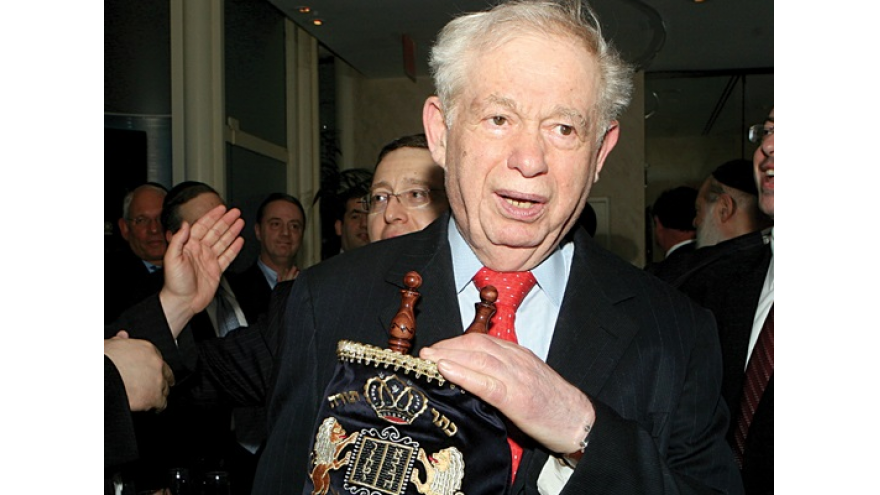Zev Wolfson immigrated to New York City at the age of 17 after being deported by the Soviets from Lithuania to Siberia during World War II. Despite his impoverished youth, Wolfson quickly became an American success story.
He excelled in real estate, business, politics and more, amassing tremendous wealth. Yet despite his wealth and influence, Wolfson remained humble. When the chairman of Merrill Lynch asked him how he gained his fortune, he responded simply: “God gave it to me.” His humility, piety and generosity were evident in all his actions.
Considering himself obligated to secure the continued growth of the Jewish people both physically and spiritually, Wolfson created and donated to hundreds of education and outreach programs. Exemplifying the great sage Maimonides’s praise for anonymous charity, Wolfson took no credit for his donations, making a complete account of his giving difficult to compile. But his support was extensive and significant, much of it directed to schools and educational programs. In his last decades, he gave particularly generously to causes that highlighted Judaism and made its teachings more widely accessible.
Wolfson took the initiative and brought about change without media fanfare. The columnist Jonathan Rosenblum recounts that when a group of young professionals asked Wolfson how they could become more active in Jewish communal work, he responded: “You’re not interested in becoming involved. If you were interested, you would just do it and not talk about it.”
When it came to Israel, Zev Wolfson followed his own advice. A great example of this is Wolfson’s meeting with Sen. Daniel Inouye of Hawaii shortly before the first Persian Gulf War. Wolfson asked the senator if there was anything in the American arsenal that could help protect Israel from Iraqi Scuds. Inouye told him about the Patriot missile batteries, and that Israel had not asked for them.
Wolfson immediately called Israeli leaders relaying this information. The next day, a New York Times headline read: “US to Supply Patriots to Israel.” The article indicated that the decisions had been reached after a meeting between “US officials and Jewish leaders.”
Despite his riches and long into his old age, Wolfson flew to Israel, always in economy class. He was a humble and wise servant of the Jewish people.


























